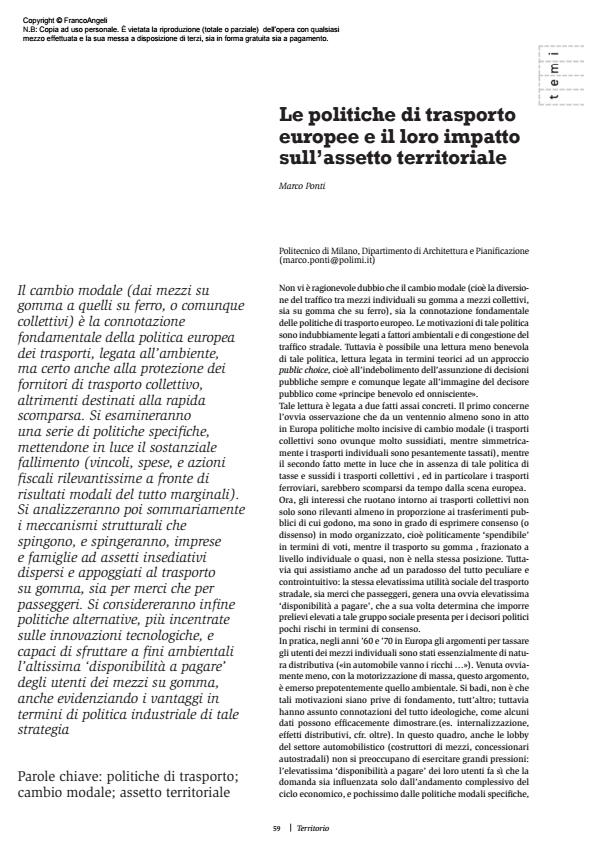European transport policies and their impact on the environment and local communities
Journal title TERRITORIO
Author/s Marco Ponti
Publishing Year 2011 Issue 2011/59
Language Italian Pages 5 P. 59-63 File size 209 KB
DOI 10.3280/TR2011-059009
DOI is like a bar code for intellectual property: to have more infomation
click here
Below, you can see the article first page
If you want to buy this article in PDF format, you can do it, following the instructions to buy download credits

FrancoAngeli is member of Publishers International Linking Association, Inc (PILA), a not-for-profit association which run the CrossRef service enabling links to and from online scholarly content.
The change in the mode of transport (from road to rail or in any case to collective transport) is one of the fundamental features of European transport policies, which, although connected with the environment, is certainly also connected with protection of the suppliers of collective transport, who would otherwise be destined to disappear rapidly. A series of specific policies is examined, highlighting their substantial failure (very substantial constraints, costs and fiscal action in return for totally marginal results in terms of mode of transport). A brief analysis is then made of the structural mechanisms, which are driving and will drive businesses and households to scattered settlements reliant on road transport for both goods and passengers. Alternative policies are then considered, which are centred more on technological innovations and are able to exploit for environmental purposes the very high ‘willingness to pay’ of road users. The advantages in terms of that strategy for industrial policies are also underlined.
Keywords: Transport policies; modal shift; spatial planning
Marco Ponti, Le politiche di trasporto europee e il loro impatto sull’assetto territoriale in "TERRITORIO" 59/2011, pp 59-63, DOI: 10.3280/TR2011-059009